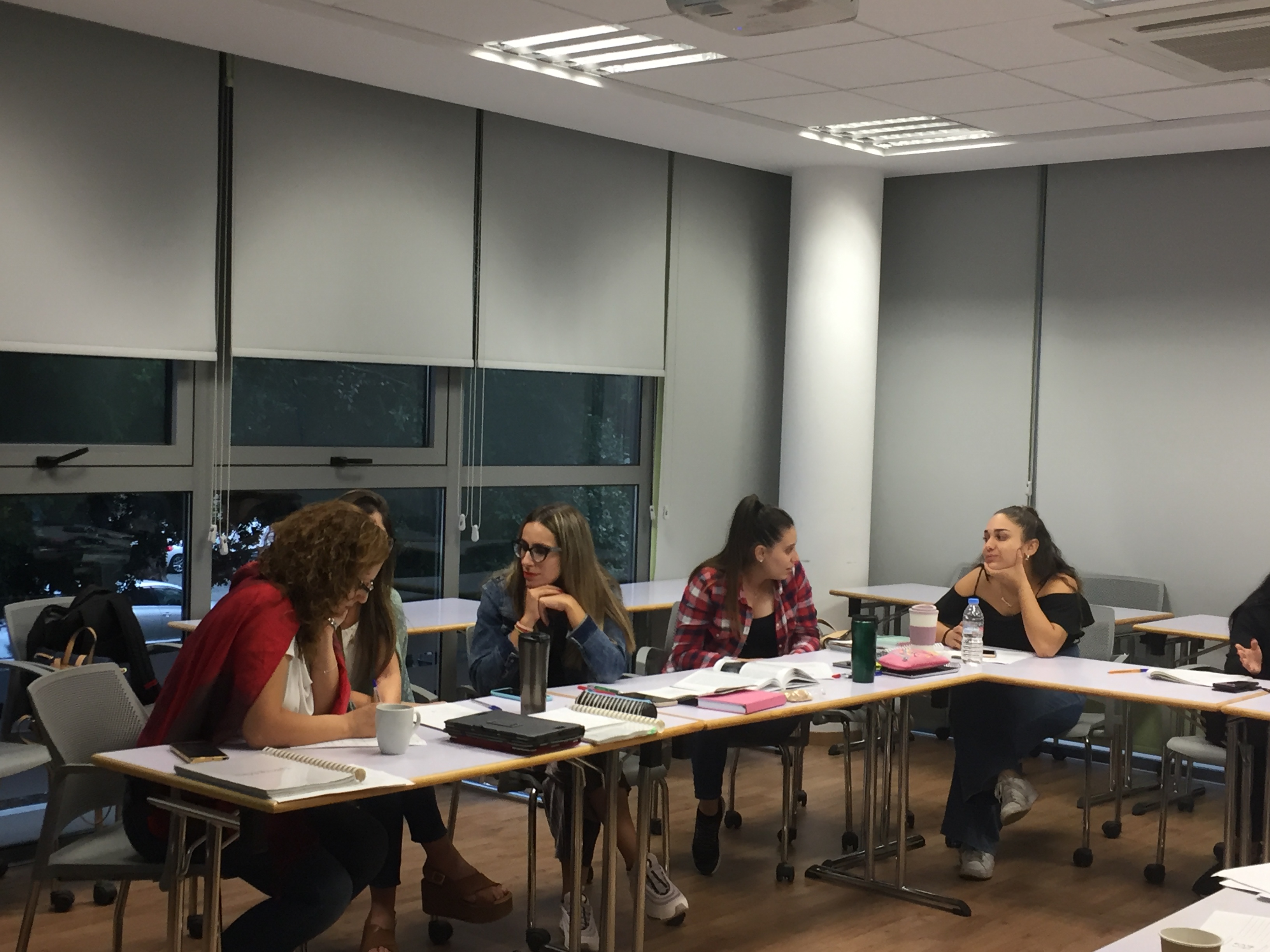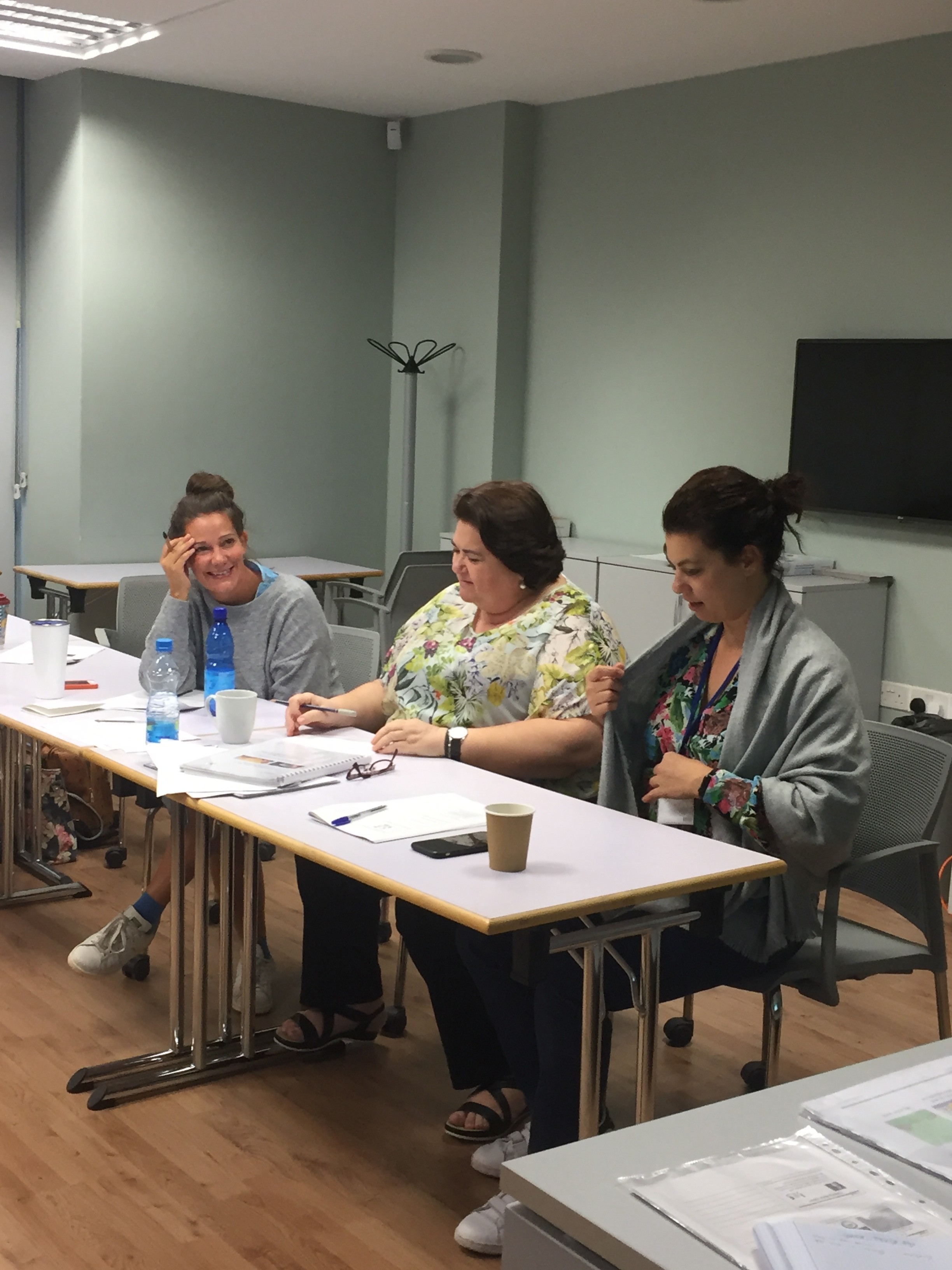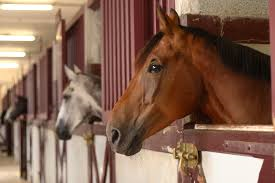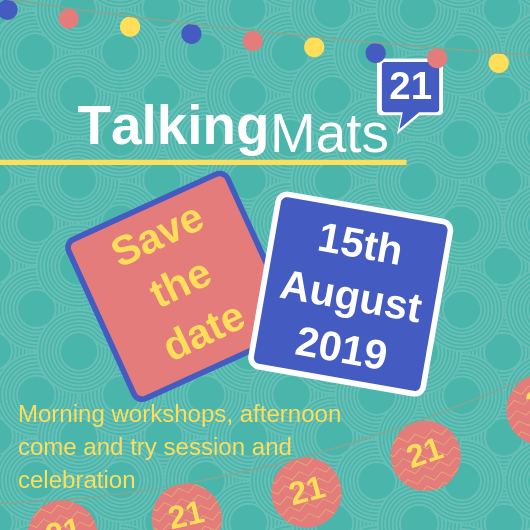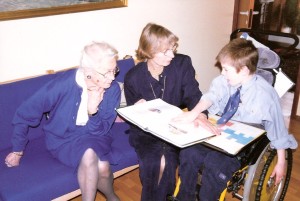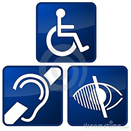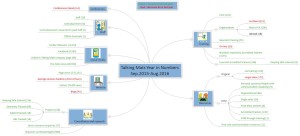Since the start of the restrictions placed on us by Covid-19 there have been lots of questions to us about how you can use Talking Mats remotely. We have all been forced to learn quickly what we can and cannot do in a virtual world when we need to be physically distanced from each other.
We have tried various ways to do Talking Mats virtually, but the easiest way we have found is to log into your digital Talking Mats through our website and use the Talking Mat in this mode. Then open your virtual meeting app, e.g. Microsoft Teams or Zoom, and share your screen. For both you can share the control of your screen so your thinker can move the options as you talk them through using the standard Talking Mats principles.
For Microsoft Teams see https://support.office.com/en-gb/article/share-content-in-a-meeting-in-teams-fcc2bf59-aecd-4481-8f99-ce55dd836ce8
For Zoom see https://support.zoom.us/hc/en-us/articles/201362673-Request-or-Give-Remote-Control
Sometimes people run into problems with the Talking Mats digital log in because they get a message about Adobe Flash. If you get that, our advice would be to try a different browser or if you are using Chrome do the following:
- Click on the 3 little dots at the top-right of chrome
- Click on “settings”
- “Privacy and security”
- “Site settings”
- “Flash”
- Change from “Blocked” to “Ask first”
EXTENDED OFFER to increase digital access during the Covid-19 Emergency
We realise that many of you don’t have the digital Talking Mats so we are making it available for a charge of £30.00 including VAT from now until the END OF 2020. Fill in this form DISCOUNTED DIGITAL TALKING MATS REQUEST FORM. 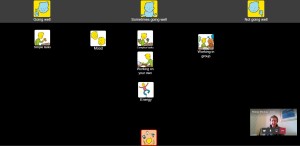 (We hope you will understand that we will not release your digital logon until payment is received.) We always recommend the Talking Mats foundation training to get the full benefit from this communication framework so watch out for our online training offer which will be released next week.
(We hope you will understand that we will not release your digital logon until payment is received.) We always recommend the Talking Mats foundation training to get the full benefit from this communication framework so watch out for our online training offer which will be released next week.
On a personal level we have been testing remote use of Digital Talking Mats amongst the Talking Mats team. We used the coping set from our Health and Wellbeing resource and it has helped our own reflections on how we are feeling about the current restrictions on our lives and the impact it is having on us.
We are aware it is still early days and we do not have a lot of experience of using the digital Talking Mats remotely with people with communication difficulties. It would be good to have a forum for sharing those experiences. We held a virtual meeting on Thursday 23rd April at 10.00 a.m. to do that here is the report of that meeting including a link to a video demonstrating how to set up your digital Talking Mat 20200429 post zoom meeting notes_ no link
Many thanks to our Talking Mats Founder, Dr Joan Murphy, for this latest blog talking about the training course she recently delivered at the Cyprus University of Technology.
Cyprus is a beautiful Mediterranean island with a population of approximately 1 million.
I was invited by Dr Eliada Pampoulou to run a 2-day course on Talking Mats for 12 Speech and Language Therapists, some of whom are masters students and some, lecturing staff at the Cyprus University of Technology. The Cyprus University of Technology founded the first Department of Rehabilitation Sciences in Cyprus and the Department offers the first public recognised university bachelor degree in Speech Language Therapy / Speech Language Pathology in the Greek language (https://www.cut.ac.cy/faculties/hsc/reh/).
Day 1 was a Talking Mats foundation training course and Day 2 focused on discussion around capacity, research and clinical applications. This model worked very well as the participants were able to think about and discuss how to apply the training immediately.
Some of the immediate plans of the participants were both clinical and research oriented and are outlined below:
- To administer the Greek Stroke and Aphasia Quality of Life Scale (SAQOL-39) with healthy people over 50 both with the text version and an adapted Talking Mats version quality and to examine which they prefer.
- To use Talking Mats both with people with people with aphasia and their carers in order to share their understanding about the communication skills and needs of people with aphasia.
- To use Talking Mats as a tool to identify the factors that are related to AAC system acceptance or abandonment by focusing directly to the views of people with complex communication needs
- To use Talking Mats as a goal setting tool for both paediatric and adult population
- To use Talking Mats to gets clients feedback about therapy services
- To use Talking Mats for student appraisals regarding their clinical training
Dr Eliada Pampoulou has created the first Talking Mats centre in Cyprus which aims to gather all people who received training every few months to share their experiences and support each other to embed Talking Mats in practice and research.
We hope that Eliada will come to Stirling next year to gain her Talking Mats licence to enable her to train others and extend the reach of Talking Mats even further.
We regularly run our Licensed Trainer 2-day courses at our base in Stirling – if you have attended Talking Mats Foundation Training and would like to train other people find out more here:
https://www.talkingmats.com/training/train-the-trainers-accredited-training/
Recently, Associated Prof. Ida Marie Mundt from Denmark completed our Talking Mats licensed trainer course. She has been looking at the theories which underpin Talking Mats and is planning to publish her work. One of the areas she speaks about is Identity.
In this blog, our Talking Mats Associate Rhona Matthews explores the area of Identity:
How do I know who I am? This is learned from actions, behaviour and language firstly with parents and family, then with friends.
For people who have difficulty interacting, this becomes much more difficult. There is a danger that others construct their identity.
A participant on our online training wrote about her experience of doing a Talking Mat for the first time with a girl who uses augmentative communication. She has a severe difficulty expressing her ideas and thoughts.
The topic was leisure activities and the top scale was things I like to do/ don’t like to do. She did this quickly and with no great surprises. The listener felt she didn’t get particularly useful information.
So she repeated the topic but with a different top scale. Things I am good at/Things I’m not good at.
Not surprisingly there was overlap with the earlier attempt. i.e. the things she felt good at, she liked which included horse riding.
Again the listener felt there was more conversation to be had! The thinker coped easily with another change of top scale which was things I want to get better / don’t want to get better at.
This time when the option of horse riding was handed over, the thinker became very animated, nodding in agreement. Not only did she want to improve her horse riding skills but wanted to learn about looking after horses. Her family had no idea that actually she didn’t just like riding but saw herself as a rider. This was part of her identity.
As Assoc. Prof. Ida says, Talking Mats offers a possibility to talk about who you are, and get other peoples’ responses.
If you are interested in accessing Talking Mats training we offer a variety of options, including online – check these out here: https://www.talkingmats.com/training/
Last week, Laura Holmes, our NW England Associate, had the pleasure of interviewing our inspirational Founder, Joan Murphy. Joan will be retiring after our Talking Mats 21 event on 15th August 2019 and so this was a great opportunity to find out more about her Talking Mats experiences:
Are there any stand-out moments for you, from your Talking Mats time?
Talking Mats are now used in many countries across the world and it has been great to have the chance to travel widely. One particular moment which stands out for me was during one of two trips I made to China with Sally Boa. I was asked to demonstrate Talking Mats with a man who was in hospital having had a stroke. He had no speech and was using a wheelchair. I used Talking Mats to find out what the man felt he could/ couldn’t do. The man shared that he felt he could walk. I had to present the symbol three times as the family members and medical staff watching were adamant that the man could not walk. On the third time, the man pushed the table, moved his wheelchair back then stood up and walked around the room. His family and medical team were completely shocked and realised that no-one had actually thought to ask him if he could walk. This was a massive turning point both for the man – and also for his family and medical team, who could now see the power of using a Talking Mat.
Have you done any Talking Mats yourself that helped you to make an important decision for you or your family?
Absolutely – quite a few! My husband and I both used Talking Mats for our Power of Attorneys and shared them with our lawyer and grown-up children. My husband and I also used Talking Mats to talk about the Scottish Referendum as we had opposing views – it really helped as it made us listen to each other without interrupting. We then went on to use the mats as part of a presentation. Various members of my family have used mats to explore personal issues and decisions
What are the top tips you have gained from your Talking Mats journey – from working in the NHS and then more recently as a social enterprise?
You have to have humour. And be able to listen. It has been essential to be able to work in partnership with Lois and the other Talking Mats team members. The team are such nice people to work with and we have lots of laughs. Setting up as social enterprise was vital for Talking Mats – in terms of having the freedom to be creative. It felt as though someone had a big rubber band which was able to be released. It was a huge risk and there have been lots of leaps of faith along the way.
Do you have any top tips for people using Talking Mats in the Listener role?
Be quiet – and Listen! It’s also important to feel relaxed and to have a sense of humour whilst using it. A Talking Mat is not a test – it is serious, and can be used to explore difficult issues, but it should be fun.
Talking Mats is a low-tech AAC system – do you think it has a place in the modern world?
It is absolutely crucial! Low-tech resources are fundamental in terms of being able to have and develop conversation skills and social closeness.
What do you want for Talking Mats in the next 10 years?
World Domination! Talking Mats has the potential to be used everywhere in the world, by everyone. However I would like to see Talking Mats continue to have a small core team, but increasing Licensed Trainers across both the UK and the rest of the world.
Our Talking Mats is 21 Event is in Stirling on Thursday 15th August 2019. Thanks to funding from NHS Forth Valley endowment committee the event is free but you do need to book your space https://www.eventbrite.co.uk/e/talking-mats-is-21-tickets-62362171935
You can come to the morning only, afternoon only or come for the whole day.
If you can’t come to our event watch out for out blogs and social media celebrating the reach of Talking Mats for 21 days before the 15th of August. Please join in with your contributions using the hashtag #TMis21. For 21 days after our event we will be having a special Birthday offer! Watch this space, more to follow …….
We are all looking forward to celebrating Talking Mats is 21 on the 15th August
The morning is aimed at people who are experienced Talking Mats practitioners and will extend thinking and Talking Mats practice. There are an interesting range of parallel sessions to choose from. Each participant will get to choose three topics to attend.
- Talking Mats as a Thinking Tool
- Embedding Talking Mats in Schools
- Talking Mats in Forensic Settings
- Talking Mats in End of Life Care
- My experience of using Talking Mats as a parent
- Talking Mats and Positive behaviour Support
- Talking Mats and Supported Decision- Making
- Empowering people with Learning Disabilities to be Talking Mats Listeners and Trainers
- Talking Mats and Children’s Mental Health
The afternoon is more informal and there will be an opportunity to engage with some of our partners – see how they use Talking Mats and try things out . There will be posters on the use of Talking Mats in lots of different places and for a wide range of applications.
Plus there will be lunch, cake and a few bubbles !
Thanks to funding from NHS Forth Valley endowment committee the event is free but you do need to book your space https://www.eventbrite.co.uk/e/talking-mats-is-21-tickets-62362171935
You can come to the morning only, afternoon only or come for the whole day.
If you can’t come to our event watch out for out blogs and social media celebrating the reach of Talking Mats for 21 days before the 15th of August .Please join in with your contributions using the hashtag #TMis21. For 21 days after our event we will be having a special Birthday offer! Watch this space, more to follow …….
Many thanks to Joan Murphy, our Talking Mats Founder, for this great blog sharing Jeppe Forchhammer’s thoughts about the importance of social communication – communicating ‘offline’ – for AAC users:
I met Jeppe Forchhammer at the 2019 ISAAC Conference in Denmark. We had an interesting conversation about the importance of social communication for AAC users and he kindly sent me this presentation and gave me permission to write a blog about his views.
Here are a few quotes from Jeppe but it is well worth reading his whole presentation
We have reached a time where communication systems become more and more electronic. I have noticed that children who need AAC ie augmented and alternative communication are starting more and more early. This I would like to question! In this lecture I will try to explain, why I think it is better to teach the children to use their body first. In order first to get direct communication relation to another person.
I think it is most important for an AAC user first to learn to interact with another person face to face. This is of course important for all infants in particular if they don’t have a spoken language. I think the eyes begins naturally to take over and the baby begin to communicate. At least I began to observe what happened around me using my eyes by watching things around me. In this way I began early to take contact with people around me.
I am afraid that AAC users in the future will lose some of their abilities to communicate with their body or facial expression. Especially if one starts too early. I think there is a risk that the child get blinkers and we have the risk that the child will be introvert. This might give the child some social problems if it doesn´t learn to use and read the body.
We must remember that a good relation is created face to face and not through a Speech Generating Device.
If they only communicate through their speech generating computer they may miss the face to face communication.
Many thanks to Jeppe for his thoughtful and stimulating comments.
If you would like to contact him, please email jeppeforchhammer@gmail.com
The importance of social and non-verbal communication is highlighted in our Talking Mats training courses. If you are interested in accessing this training take a look at our options here – https://www.talkingmats.com/training/
In this latest blog, our Talking Mats OT Associate, Rachel Woolcomb tells us how Talking Mats can support delivery of Personalised Care:
“Person centred practice”, and “partnership approach” are common phrases heard in health and social care settings but what does this really mean in practice?
How good are we at ensuring our service users are truly heard, and given opportunities to talk about what is important to them?
Recently NHS England set out their ambitions for the delivery of personalised care. This is a commitment to enabling people to have the same choice and control over their mental and physical health that they have come to expect in every other part of their life.
This however requires a shift in culture.
One of the cornerstones of personalised care is shared decision making. This is a collaborative process in which people are supported to understand the options available to them including the various risks, benefits and consequences. A shared decision will have acknowledged personal preferences, circumstances, values and beliefs. This ensures that when a choice is made it is fully informed.
There is substantial literature which demonstrates the usefulness of goal setting as part of the communication and decision making process.
A well written person-centred goal will describe the anticipated achievement of a specific activity. It will be meaningful and help create a common vision within the rehabilitation process.
Talking Mats is an ideal tool to help facilitate these processes. They enable better conversations and provide an interactive thinking space. They have also been demonstrated to be a useful tool in enabling people to think about their rehabilitation goals.
Read more about this in the TMOT Resource 2: How Talking Mats can help facilitate shared decision making and goal setting: Goal setting TMOT 2
If you would like to find out more about the different Talking Mats training options we offer, take a look here: https://www.talkingmats.com/training/
Get involved in choosing a Communication Access UK Symbol , and set the standards to go with it!
In early 2017 Communication Matters[1] found out that –
- People with communication difficulties don’t always get the support they need in the community.
- People would like a Communication Access symbol in the UK. Businesses already use some symbols e.g
A small group of people were asked to choose a symbol to represent Communication Access. 2 ideas were very popular. For an organisation to display this communication symbol it will mean the staff have been trained to support communication and that the business meets certain standards
Communication Matters now want to hear from more people, with and without communication difficulties.
To have your say about 1) the symbol and 2) the standards to support communication follow this link. http://www.talkingmats.com/wp-content/uploads/2017/12/Communication-Access-UK-Symbols-and-Standards.pdf You will find the symbol choice and a Talking Mat to decide what is important to include in the Communication Access Standards. Send your responses to Communication Matters
Email : admin@communicationmatters.org.uk
Or post : Communication Matters, 3rd Floor, University House, University of Leeds, LEEDS, LS2 9DF
[1] http://www.communicationmatters.org.uk/
We are delighted to be travelling to Australia and New Zealand in May 17 and look forward to the opportunities the trip gives us to discuss Talking Mats in these countries.
Firstly, we are pleased to have been invited over to Australia to be involved in the Agosci Communication Conference in Melbourne from the 18-21 May 2017. Agosci is an inclusive organisation that supports the participation of all people with complex communication needs. The theme of this conference asks participants to involve people with complex communication needs in all aspects of life to create a more welcoming society for people with communication support needs.
Lois and Nicki will be attending for Talking Mats and their involvement at the conference includes
- A one day pre – Agosci conference Foundation training for professionals in Melbourne
- 2 presentations – one on the potential use of Talking Mats in National Disability Insurance Scheme (NDIS) and one on our current Keeping Safe project
- A poster on using Talking Mats in Eating and Drinking
- A stand which will run throughout the conference and where we can and meet and chat to delegates
In addition prior to the conference we are running
- A one day Foundation training in Sydney for Hammond Care
New Zealand
Plus we are really pleased to have linked with the Talk Link trust in New Zealand and will be visiting both Christchurch and Auckland and running foundation courses in both those places. New Zealand can be proud of their world record of electing Robert Martin in June 2016 to become the first person with an intellectual disability to serve on the UN committee dealing with people with disabilities. It feels a privilege going to a country which is providing such leadership in self-determination.
Train the trainers
We fly back to Melbourne and run a two day Accredited Training in St Kilda’s Melbourne for Australian and New Zealand professionals previously trained in the use of Talking Mats via our online course. This course will allow them to train others within their respective organisations. By providing our accredited training and ‘training the trainers’ we are facilitating the increased use of Talking Mats in Australia and New Zealand . This increases professional skills, improves the quality of the service being provided and most importantly improves the quality of life of the person with the communication difficulty by assisting them to express their views.
So a busy schedule but exciting and we hope to have some time off to relax and enjoy new sites and a different culture. There will be more blogs to follow……… Plus if anyone has any top tips for coping with long distance flights we would like you to share them!
Talking Mat would like to wish you all a Happy Christmas
2106 has certainly been a busy year for us at Talking Mats. We have seen some staff changes saying goodbye to Jill hall and welcoming Morag Crawford. We were delighted when we brought Kirsty onto our staff . Kirsty originally volunteered with us as part of a school transition programme for people with autism. Laura Holmes joined us as a Talking Mats external associate for the North West of England.
If you are interested in what we do and want to see our activity in numbers then have a look at the Talking Mats Year in numbers . Click on image to see the enlarge !
At the moment we are busy preparing for 2017 and we are looking forward to
- The evaluation of our following projects in The New Year
- The National Involvement Network on our partnership with ARC Scotland
- Our programme of service wide training with Central London Community health
2 Continuing to work with
- Patient Opinion
- The Alliance Self-management digital project
- Colleagues in Germany
3 Launching more resources
- Keeping Safe- so far this resource has only been available to people working with people with learning disability in Scotland. We will be holding a specialist seminar about this resource in London on the 17th March so its use can extend south of the border .
- Launching our conversation sets: gardens, holidays, trips out, sports indoor, sports outdoor and football. These were developed as part of the family training for people with dementia but they have much wider use and will be available as additional Talking mats sets
Plus Talking Mat is planning to go to Australia in May!
Nicki and Lois have their flights booked. Agosci here we come ! Then we are over to New Zealand to run foundation training in Christchurch and Auckland before we head back to Melbourne to run the first ever accredited training course in Australia. We will also be running a specialist seminar on Keeping Safe in Melbourne. If you want any details about the trip please get in touch.
We really appreciate all the support we get from everyone involved in Talking Mats and wish you all a happy and peaceful festive season
 Online training login
Online training login 

